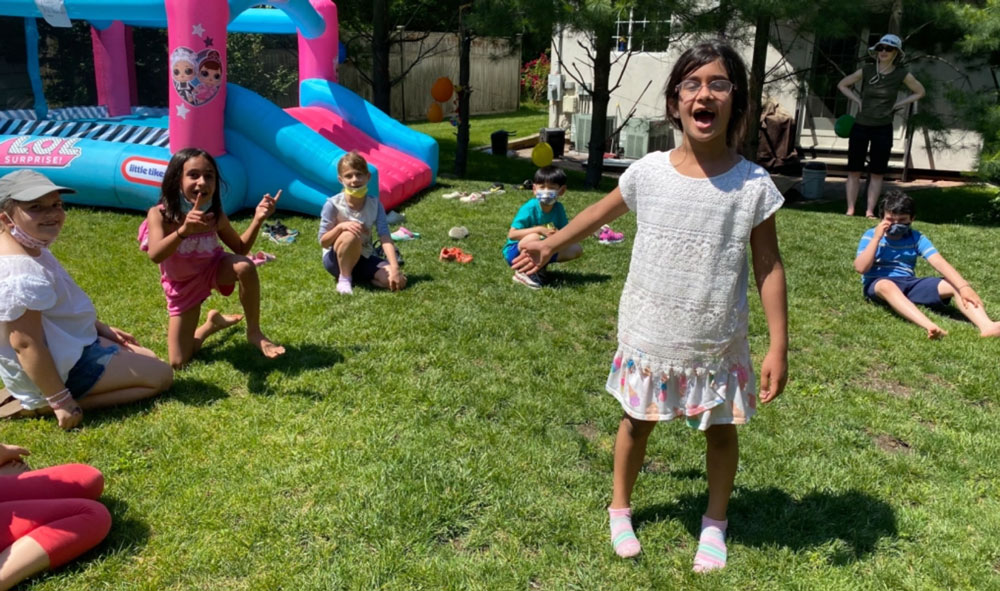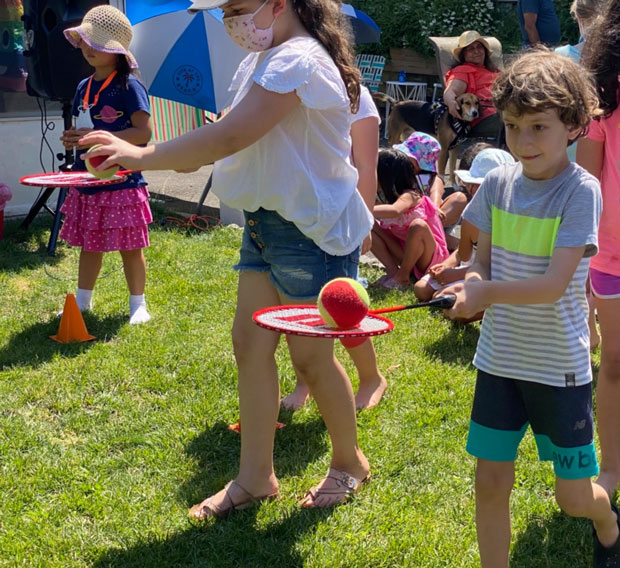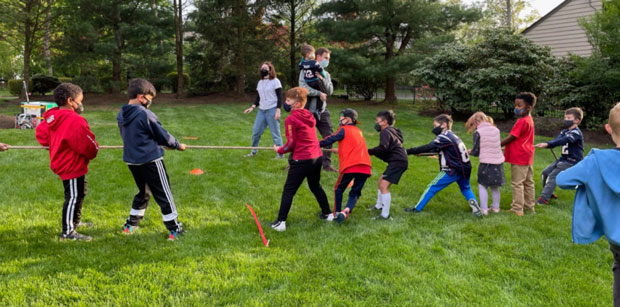
We want a child to remember their birthday’s with excitement and joy, as if it is the best day ever. A party should be magical and meaningful for the friends and family that attend. Thinking back about parties that were loads of fun for all have a common theme. It’s not about how much money was spent or the type of entertainer that was hired -- a party where everyone is having a good time is inclusive.
Traditional games played at a child’s birthday party focus entirely too much on a single winner that gets a prize and lots of losers. Games like Musical Chairs or Simon Says leave participants who lose early on in the game with nothing to do but watch someone else win. Unoccupied and feeling left out are not emotions that we want guests to feel on a day that should be filled with joy and good times.
INCLUSIVE GAMES FOCUS ON COMARADERIE
The fact of the matter is that children enjoy playing together and most of the games that they come up with on their own rarely have winners and losers. If children practice cooperation at home and school and are entertained with games that are high-energy and no labels, parents should embrace it.
“Inclusive games at a child’s birthday party are structured very differently than traditional competitive games. Inclusive games focus on camaraderie and the challenge of the game. There is never one person left out because the fun comes from the challenge of the activity,” says Monique Banks, co-founder of BLUEPRINT, a downloadable DIY party plan with customizable options who has created over 3,000 children’s birthday parties. “When lots of high-energy games that are inclusive are played at a party, everyone is happy. Kids are cheering for each other, not against and there is a level of excitement that is not achieved with competitive games.”

INCLUSIVE GAMES INCLUDE KINDNESS
How can a parent know if a game can be considered inclusive? These games are structured in a way that players must help one another, share, and support each other. It’s not to say that inclusive games can’t have a sense of competitiveness, but the competition is not based on the individual. Teams of relay races are a good example, because the entire party can be divided up into three teams. Each team has to encourage and support their members and help as much as possible. When the game is over, no one is left out because there is a beginning and an end, and not a slow dropping off of individuals.
“Inclusive games are fun because kindness feels good. It’s an emotion that we are drawn to giving and one that we appreciate receiving,” says Ariel Banks Baker, co-founder of BLUEPRINT. “Kids don’t have to be the most popular, the fastest, or the luckiest to feel like they are having a good time. Even if a child is a cousin or outside member of a school group, they will feel like they are part of the team and will have happy memories from the event. That’s what it is all about.”

INCLUSIVE GAMES ARE MORE FUN
Parents who think back to their own birthday parties as children will have no problem remembering the fun they had at games and activities that included everyone. Competitive party activities are fun for only one person, the winner. The rest of the young guests are often crying or as they get older feeling sad and wanting to go home. “We have had activities, such as a marshmallow fight game where every child is having so much fun that the parents join in too,” says Monique. “The magic of a birthday party is about the emotions you create when the event is happening. It’s fun to feel like you are a part of something that is exciting,” comments Ariel.



























